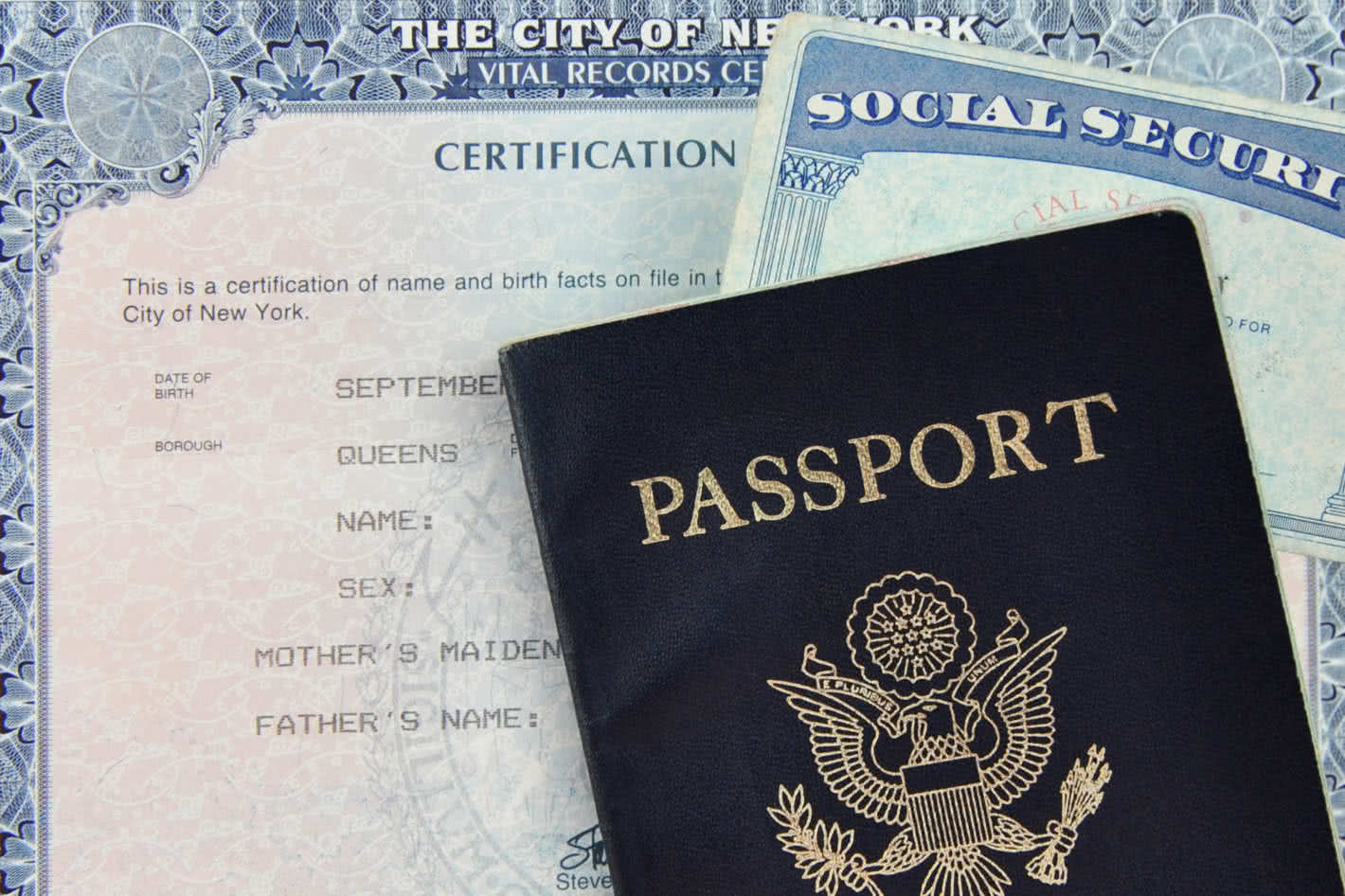10 Ways for University Students to Prepare for Their U.S. Student Visa Interview
The student visa interview can cause anxiety for many prospective students who want to study in the U.S. The truth is, the U.S. government wants to approve student visas. Foreign students enrich the cultural diversity of a university, and often become permanent “goodwill ambassadors” of the U.S. when they return to their home countries. They are an essential source of revenue for most U.S. universities and university towns. Research-focused universities heavily rely on the diverse skill sets of foreign graduate students.
If you are a legitimate student who can afford your education, and you have never violated the terms of a prior visa, it is highly likely your student visa will be approved.
1. Schedule your interview as soon as possible
Depending on your location, there could be a substantial wait time for a student visa interview. Your visa could also require additional processing, or the officer could request additional documents, which could extend the time it takes to approve your visa after your interview. Don’t wait until the last minute to apply. You will need to wait until you have your SEVIS ID number, which is printed on your I-20, as this is required in the on-line visa application for students.
It is a goal of the U.S. State Department to ensure that students do not miss their start dates for school. If the first available interview date will not allow you to start school on time, visit the website for the Embassy or Consulate and follow the instructions for requesting an expedited appointment.
After your interview, the officer will give you a time frame in which your visa will be delivered. If you will not receive the visa in time to start school, let the officer know and they may be able to arrange for expedited printing and personal pickup.
2. Read the instructions provided by the specific Embassy or Consulate where your interview will take place
Visit the website for the Embassy or Consulate, then go to the page for the Consular Section. Each location has specific instructions for what you need to bring, based on local conditions. There is also information about how early to arrive, what you are allowed to take into the facility, etc. After making your appointment, you will receive a confirmation page. This confirmation page will also have valuable, locally specific information.
If you are a minor, you will usually be allowed to bring a parent or guardian to the interview. If you are not a minor, it may still be helpful to bring the person who will be paying for your education, but this is not allowed at all locations.
This is an example of the information provided to student visa applicants applying in Mexico: https://mx.usembassy.gov/visas/studyinginusa/the-interview/
3. Have all your documents organized and be familiar with their contents
A consular officer only has a few minutes to decide whether your visa will be approved. You want to present a professional demeanor that shows you understand the importance of the interview and that you are respectful of the officer’s time. Cell phones are not allowed in most consular waiting rooms so you will need to print anything you need.
4. Look professional
No need to wear a three piece suit, but again, you want to present a professional demeanor. Think about how you might dress for an interview with a college admissions officer. This isn’t the time to wear that T-shirt with the big marijuana leaf on the front.
5. Be prepared to answer questions about your educational choices
The consular officer may not be familiar with the school you are attending. You need to be prepared to answer questions like:
- How did you hear about this school?
- Why did you choose this school?
- What other schools did you apply to? Were you accepted?
- What do you want to do with this degree?
- What will you major in? Why did you choose that major?
- What did you major in for your undergraduate degree? Where did you go?
You should be prepared to give the officer brief, but honest, answers to these types of questions. If you already have a bachelor’s degree and are seeking a second bachelor’s degree, you will need to be able to explain how this additional degree will help you achieve your professional goals. Same goes for second master’s degrees and PHDs, although additional graduate degrees are more common.
Graduate students should bring a copy of their CV.
6. Be prepared to talk about money
This is one of the most important parts of the interview. Your family may be paying for your education, but it is likely that you will be the one who has to answer questions about how your education will be financed. You will need to show proof that you or your parents have the funds to cover the amount listed on your I-20. A job letter from your parents won’t cut it. You should be prepared to show that the amount is available, in cash. Even if you plan to live with a friend or relative, you should be prepared to show that you have the amount of money listed on your I-20, including room and board.
If someone other than your parents is your sponsor, this can be much trickier. The officer must be convinced not only that your sponsor has the funds, but that they really intend to use the money to pay for your education. For example, if your uncle is paying for your education, you may be able to show proof that he has paid for your older brother’s education, or that he has paid for your secondary education. The more distant the relationship between you and the sponsor, the more proof you will need to show regarding their intent. It is risky to pre-pay any expenses before your visa is granted, but if the university already required deposits or partial payments, you should bring those receipts.
If paying for your education would use most of the resources your sponsor has, you may also need to explain or show what other resources the sponsor has to support their own family. For example, if the amount on your I-20 shows that your projected expenses will be $30,000 and you bring a bank statement from your uncle showing that he has only $35,000, that may not be strong enough evidence to show that he intends to sponsor the entire cost of your education.
If you have a scholarship or fellowship, this should be listed on your I-20 as a reduction to your expected expenditures. If you have a scholarship that is not listed on your I-20, you should bring official documentation of that scholarship.
Here are examples of the types of questions you may be asked regarding how your education will be financed:
- Who is paying for your education?
- Why is this sponsor paying for your education? (if sponsor other than parents)
- Where will you live while you go to school?
- What type of occupations do your parents have?
- What are the conditions on receiving this scholarship money?
7. Be prepared to answer questions regarding your ties to your home country and your ties to the U.S.
Each student visa applicant must convince the consular officer that they will return to their home country when they are finished with their studies. An officer must also be convinced that the applicant has the intent to study, and won’t immediately apply for a change of status to an immigrant visa, or claim asylum.
Your prior travel to the U.S. (or even western Europe or Australia) is very relevant to the officer in making this determination. The officer may also consider your prior visa refusals.
These are the types of questions you should expect:
- Have you ever traveled outside of your home country? Where? How long? For what purpose?
- Do you have any relatives in the U.S.? Where do they live?
- Do your parents or siblings have U.S. visas? Did they study in the U.S.?
- What do you plan to do after you graduate?
8. The interview is an assessment of your English skills
Unless your university offers classes in your native language, your English skills will be assessed during the interview, and the interview will be in English. Even if you have a good TOEFL score, it is the officer’s responsibility to assess whether your English skills are strong enough for you to be a successful student.
The officer knows that you are probably nervous, this is normal. There is no English “test”. The officer will usually assess your English based on your responses to the questions they already need to ask to determine if you meet the visa qualifications. If you are familiar with the topics discussed above, this will help you feel more relaxed and you will have an easier time expressing yourself in English. However, you may want to review technical words that are used to describe your field of study.
9. Take a look at your social media pages
Although it is not part of routine interviews, consular officers and immigration officials sometimes review an applicant’s social media pages as part of their screening process. Any information they see that would lead them to believe you may not be a legitimate student or that you plan to violate the terms of your visa could result in a visa denial or a denial of entry to the U.S.
10. Be honest
Each consular official interview hundreds, and sometimes thousands, of students each year. They have access vast amounts of information regarding your travel history, the immigration status of your relatives, and your criminal record. They have contacts with local police and banks and have the resources to verify just about anything you may say in an interview. If you are dishonest about a small thing, they may doubt the truthfulness of the entire interview. This could have devastating consequences on your ability to travel to the U.S. for the rest of your life.
If you have issues that may complicate your student visa issuance, you can seek professional legal advice. U.S. immigration law is a highly technical field, so you should consult with a licensed attorney who has expertise that is relevant to your particular situation.
Recommended Articles

SCOTUS clarified that a legal permanent resident alien can be physically in the U.S., commit a criminal offense, and still be inadmissible.

Fifth Circuit: Former Informants Are Not Protected Group

The Secretary of Health and Human Services has asked the Pentagon to add 5,000 more beds for young people. During last year’s surge of undocumented persons, the military opened emergency shelters to house the migrants at bases in Oxnard, San Antonio and Ft. Sill, Oklahoma.

On September 26th, 2015 U.S. District Judge Dolly M. Gee granted final approval of the settlement in Franco v. Holder, paving the way for previously deported immigrants with severe mental disabilities to request to reopen their cases in Immigration Court, and if approved return to the United States.

The defense attorney has an affirmative duty to properly advise. It is not enough to say it is a “possibility” under those circumstances.

About Michael Harwin
Michael’s skill and experience have been recognized repeatedly. He holds an A-V 5/5 preeminent rating by Martindale Hubbell. He has been named one of the top lawyers in Arizona by Southwest Superlawyers, and one of the best lawyers in Tucson by Tucson Lifestyle Magazine. He also has been named one of the best lawyers in the United States by BestofUS.com , and given the highest rating possible by AVVO, 10/10 Superb. Amazon Books

